Jamaican Blue Mountain coffee beans make one of the best cups of coffee in the world. Due to a culmination of unique flavor, limited supply, and long standing history, Blue Mountain has risen as one of the most prolific and delicious coffees around.
So how did this come to be? How did the companies and farmers resolve the issue of little supply for huge demand? Well, let’s explore a bit into how this coffee got to where it is today. We also have a Brazilian coffee guide here, in case you were interested in exploring some of the top brands for that region!
If you want to learn in depth history or the long history we’ve dug up on the various Jamaican Blue Mountain retailers and brands, scroll below. Just in case you want our top recommendations, here are two top notch recommendations for you to try right off the bat: with over a 1000 reviews, Cameron’s blend of this coffee takes the cake on Amazon with near perfection, we highly recommend this one especially for first timers. I’ve personally tried this and indulge myself once a week out of the month with this brand. For K-Cups in same brand, you can click here to check out Cameron’s K Cups for Jamaican Blue Mountain coffee on Amazon by clicking on this link.
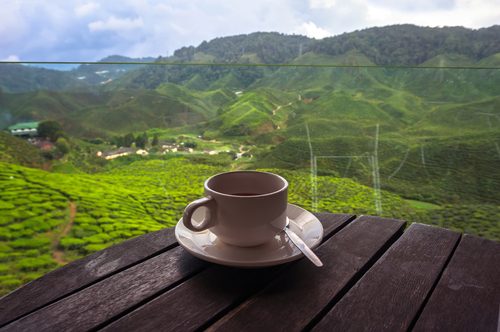
Early History And Origin of the World Famous Jamaican Blue Mountain Coffee Beans
In the early 18th century, the French King Louis XV sent three of his coffee plants to the French colony of Martinique, as a gift to the Governor.
The Governor of Martinique then sent one of those plants to the Governor of Jamaica about five years later, also as a gift. The plant was then nurtured into an entire plantation, then made ready for distribution.
From that single coffee plant began the history of Blue Mountain coffee. Within nine years, that first arabica plant was refined, turned into coffee, and then sold and exported for the first time.
This marked a new generation of commerce in the Jamaican coffee industry. Not only was this a huge boon for coffee companies, but for Jamaica as a whole.
A new luxury product was getting ready to be exported to countries around the world, bringing more and more money into Jamaica itself.
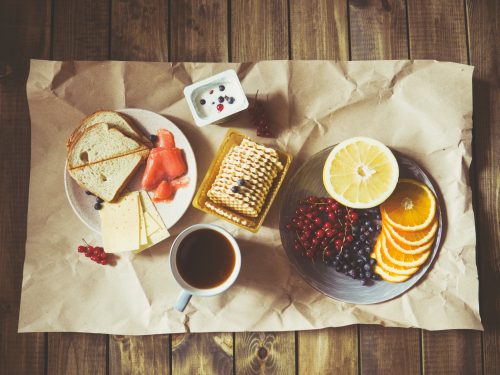
This helped to boost the economic cracks that were beginning to form, due to the slave trade at the time, and the increasing demand for abolishment.
Between 1800 and 1850, Blue Mountain continued to quickly rise through the ranks of coffee competitors, and finally settled as being the single largest producer of coffee in the world.
This was also a time of civil and political unrest for Jamaica, as the abolishment of slavery had passed in 1838, causing many plantations to shut down so freed men could grow sustenance crops for winter.
While the abolishment of slavery was a tremendous milestone in Jamaica’s history, the amount of land that was shifted away from growing commerce crops was partly what was causing a rift in the economic bubble.
This, along with a slew of other events in Jamaica’s history, caused the coffee industry to be in utter chaos by the late 19th century.
To bring order to the calamity that the industry was in, the Jamaican government passed legislation to help regulate and control the trade and production of the Jamaican Blue Mountain coffee, including that of the Blue Mountain Coffee company.
The Munn Family’s Role In Early JBM Production
During the 1800’s, Cecil Augustus Munn started cultivating coffee at Strawberry Hill. In the 1920’s, Victor, Cecil’s son, began Mavis Bank, a coffee mill on Strawberry Hill.
It is there where Kebble Munn, Cecil’s grandson, fell in love with coffee and learned the art of cultivating and processing quality coffee.
Kebble Munn is renowned for his fight to uphold the reputation of Jamaican Blue Mountain coffee. On his return home after his military service in the Canadian army in WWII, Kebble was disappointed by the diminishing status of this regional coffee.
This was something he attributed to the Jamaican coffee sellers who packaged their low-quality coffee as genuine JMB coffee.
To reinstate Blue Mountain coffee’s reputation, Kebble deemed it advisable to create a government-recognized Blue Mountain coffee district; only coffee cultivated at a particular altitude or elevation would qualify as genuine and hence, best Jamaican Blue Mountain coffee.
In 1956, during Jamaican colonization, Munn began his political career as a People’s National Party member. He had a controversial and active political life when his aspiration for this coffee surfaced.
In 1973, the Act of Parliament stipulated that only coffee cultivated in a specified area on Blue Mountain (altitude ranging from 3,000 to 5,500 feet), and processed by Mavis Bank Coffee Factory and three other affiliate factories could be lawfully endorsed as 100% Blue Mountain coffee.
Kebble faced various attacks for using his political authority to create a monopoly that crippled small-scale farmers. However, this move gained acknowledgement as a warranty for an unusually high-quality coffee, which eventually restored Jamaica’s coffee reputation.
In 1953, having seen the profitability potential of Blue Mountain coffee in Japan, loans were negotiated with a Japanese coffee importer for the sole reason of developing this coffee industry.
During the late 1970’s, together with Elkins Coffee Co., Concord, New Hampshire, Kebble created Jablum, a brand of Blue Mountain coffee, which ended up in the United States’ finest shops.
Mr. Munn’s endeavors created an economic model that put Blue Mountain coffee farmers among the top-earning coffee cultivators across the globe.
Below are some reasons why Jamaican Blue Mountain coffee beans are, and remain, so special today.
#1. Quality Control Makes Jamaican Blue Mountain Beans Control World Class
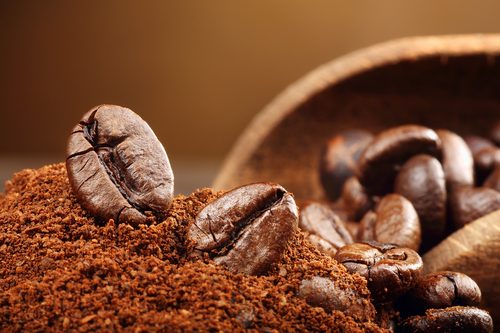
Over the course of fifty years, quality restrictions and controls became the main concern and project undertaken by the coffee industry.
Most of this change was inevitable, as standards for common and uncommon goods became tighter. Distributors, during this time, began to seek more controlled quality of their products, which in turn forced companies to regulate even further.
A huge turning point was made when the trading of coffee to Canada was brought to a standstill, due to the poor quality of the coffee that was being moved out of Jamaica.
It was at this point that the Jamaican coffee industry began to focus on improving quality and control of the entire coffee process. This was done through two major changes to both the industry, as well as governmental legislature.
The first of the largest two changes of quality control, was the introduction of a central clearing facility for the export and distribution of every coffee bean sold and exported from Jamaica.
The new Central Coffee Clearing house was in charge of processing every pound of coffee for export the same way, and under the same conditions.
Allowing companies to market their coffee as perfect every time helped bring further good reputation to Jamaican coffee.
The second movement was the creation and installation of the Jamaican Coffee Industry Board, (JCIB). This board is responsible for maintaining these regulations, and ensuring that both new and existing regulations for quality remain up to the standards by which they were created.
Having these two systems, together, has led to a prosperous and uniquely niche industry for Blue Mountain coffee. The result for the Jamaican coffee industry was a very clean and regulated product, making it the best Jamaican Blue Mountain Coffee available in the world!
This, in turn, gave Blue Mountain its label for being unique and rich, and very well regulated. They could start charging more for the coffee, because of the precision quality, the low supply, and demand that had not changed for fifty years.
Today, the Jamaican Agricultural Commodity Regulatory Authority, (JACRA), is continuing to see over the coffee market in Jamaica.
This allows the coffee to stay at the same level of prestige it has culminated. While these strict regulations can cause delays and smaller batches than intended, the level of meticulousness processors have to go through, is well worth it.
#2. Cultivation
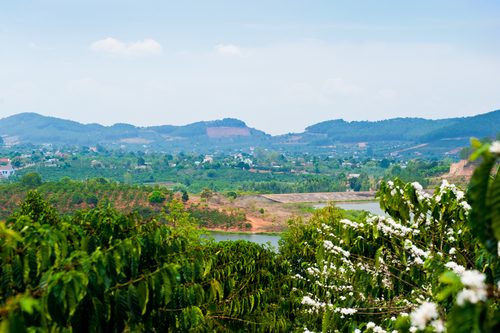
Cultivation is another huge reason that Blue Mountain coffee beans production is unable to meet the constant demand that the world has for this product.
Each plant is grown in a specific way to ensure maximum quality and yield of every bean, including planting at up to 70 degree inclines.
Because the JCIB (as of 2018, it was integrated into the JACRA), has such a high standard for their exports and products, each plant is cultivated by hand, and each bean hand-surveyed and inspected to scrutiny.
Then, they are barreled by hand, packed, and shipped. The amount of labor that goes into each barrel is largely why Blue Mountain has such little supply for their demand.
Cooler mountain temperatures also cause a slight damper to the growth cycle of the coffee plant. It normally takes twice as long as other coffee plants would take to grow and harvest.
Even the space in which the coffee is planted is specific and restricted. Because Blue Mountain plants are only planted in three different parishes, they cannot afford any mistakes at any point in the growing process.
Along with strict planting and cultivation requirements, there is one more reason that Blue Mountain is hardly seen in the UK or U.S. It’s because almost eighty percent of crops are exported straight to Japan.
This puts even more of a pressure hold on the twenty percent that is shipped to other countries. It’s actually a wonder why this coffee is only as expensive as it is.
#3. Specialty And Uniqueness Due To Region of Blue Mountain Coffee
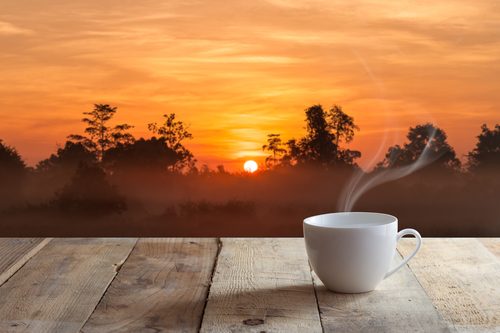
Jamaican Blue Mountain coffee beans are unique because of where they are grown, and the flavor they gathers, due to being grown in such an environment.
Blue Mountain not only has an iconic look, but an iconic taste as well, due to the volcanic soil in which it is grown. The flavor is often described as rich and sweet, slightly acidic, but full bodied and vibrant.
In order to be considered Jamaica Blue Mountain, the coffee beans need to be grown at heights of at least 1,800 meters, in the Parishes of St. Thomas, St. Mary, and Portland.
Because of the soil and climate these parishes are in, this coffee cannot be planted anywhere else on the island. It would never be considered true Blue Mountain coffee.
The market doesn’t allow cheap imitations to make it very far. By introducing a mark of authenticity to each and every Jamaica Blue Mountain Coffee product, local companies limit the range and ability of look-a-likes to tarnish the sterling reputation that JBM has cultivated for itself over the last hundred years.
While there are blends out there that claim to have JBM as one of the beans included within, they tend to over imply how much is in them.
Yes, JBM beans do make it to other blends, but it’s often so little, that it doesn’t have that similar taste or aroma that an authentic cup of Blue Mountain would have.
Another paramount component to the uniqueness of Blue Mountain is the soil in which it is planted. The arabica plant loves the nitrogen and phosphorus rich environment of the Blue Mountains.
Combine that with regular rainfall, and the natural cloud cover the island provides, and you get an extremely unique and coveted flavor. This exclusivity and frill is what continues to set this coffee apart from other coffees.
Best Jamaican Blue Mountain Coffee Retailers & Brands

This coffee is one of Jamaica’s best coffee blends. It is grown high up in the Blue Mountain range that dominates most of the eastern part of the Island.
The coffee has been produced since the late 1700’s, and is considered one of the most expensive coffee brands on the planet. The hundreds of years of growth and development of the Jamaican Blue blend makes it one of the best coffees in all of the world.
Keep in mind that Jamaican Blue is the name of a coffee system that is derived from the mountains. There are various companies that market the Jamaican Blue blend.
Keep in mind that the coffee industry within Jamaica closely monitors this coffee. Since they are among the best in the world at this job, they ensure that no knock off brand is being marketed around the world.
Japan is the biggest consumer of the best Jamaican Blue Mountain coffee. Many of the businesses that produce Jamaican Blue coffees sell to this country.
Also, these coffee blends are sent around the world to high end gourmet coffee shops. Jamaica Blue coffees have strong competition in South, Central, and North American markets.
Still, they manage to impact these areas as well. There are three companies that cultivate the Jamaica Blue coffee blends.
They are Volcanica, Wallenford, and Jah B. We’ll take a closer look at these 3 Jamaican Blue Mountain coffee brands / companies and their commitment to producing fine Jamaican coffee.
#1. Volcanica
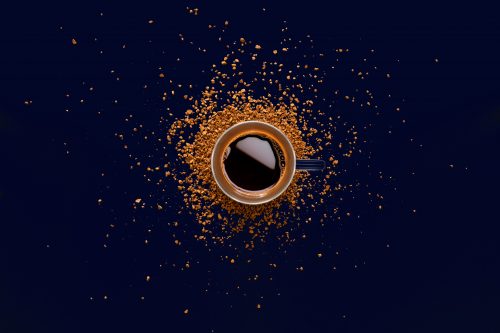
One of the most well known Jamaican Blue Mountain coffee brands: Volcanica was started in 2004, and it is considered a high end coffee company that produces many types of coffee products.
The company was established to elevate the flavor of coffee, and to introduce the real taste of coffee to the world. Volcania specializes in Jamaican Blue coffee, because they know that it is a highly valued coffee product that has a unique taste and style.
Coffee drinkers will not be able to miss out on the distinct flavoring that a Blue Mountain variety provides. This coffee blend is among the best in the world, and Volcanica is marketing it to coffee lovers within many markets.
#2. Wallenford
Wallenford coffee has a head start on the other Blue Mountain coffee businesses. This company has been around since the 1700’s, when the Blue Mountain industry was starting to form.
A British Navy Captain by the name of Matthew Wellen sailed to Jamaica to pursue his passion for botany. The results of his efforts produced over 400 species of ferns and Blue Coffee plants.
He created a farm that specialized in Blue Coffee production, and it proved to be a success. Since that time, Wallenford is one of the top selling companies for Blue Mountain coffee products. The company also sells other blends of coffees as well.
#3. Jah B
One of the most well known Jamaican Blue Mountain coffee brands: Jah B is an independent coffee grower in the Blue Mountains of Jamaica. He has been cultivating coffee in this region since the 2000’s.
At first, he had a hard time getting ahead in this business. He was a small coffee producer and there were many restrictions that prohibited him from gaining a larger share of the coffee market.
Eventually, all of this changed and by 2013, Jah B has been able to market Jamaica Blue blends to the world. This coffee outfitter produces other products, as well. Jah B markets his coffee styles to various parts of Europe.
Jah B is just another example of the great coffee products that are marketed from the Jamaican Blue region. This coffee business is considered one of the best in the world, and their products are extremely outstanding. People in China, Japan, United Kingdom and various parts of Europe truly enjoy this gourmet coffee blend.
How To Choose an Authentic Option
First, let us tell you a little bit about this exceptional coffee. “Blue Mountain” coffee is named after the Blue Mountains of Jamaica, where the climate is ideal for cultivating arabica beans.
The parishes in which the coffee is grown are all at three to five thousand, five hundred feet above sea level. When beans are grown at such an altitude, they are dense, hard, and packed with intense flavor.
For the coffee to be called Blue Mountain, the beans must have been grown in one of these five parishes. Only then does the coffee deserve to carry the Jamaican name with authentic pride.
Unfortunately, not all vendors are being honest with you when they say their Jamaica Blue Mountain Coffee is the real thing. The Jamaica Blue Mountain Coffee beans have to be the real deal!
Where there’s a way of making money at another’s expense, it will be taken; it’s up to the buyer to beware. Not everyone is honest!
Fake Jamaican Coffee Products
This seems to have become a global issue, with large quantities of fake Blue Mountain, and other Jamaican Coffee products already for sale all over the world.
As a matter of fact, the places closest to Jamaica are where the fake coffee is most likely to appear in local gift shops, supermarkets, and craft markets.
Authorities have been tipped off by visitors and locals alike, finding fake products for sale in stores, and being served in many restaurants and hotels as well.
The problem with fake products is that it doesn’t just affect consumers, but the entire industry. The lower prices at which fake Jamaican coffee products can be sold affects the price at which authentic products may be sold.
If consumers believe they can get the real thing for fifty dollars cheaper, they will most likely accept the lower price.
However, they are then sold inferior coffee products, and have not only lost their money, but perhaps their taste for Blue Mountain.
How To Spot The Fakes
There are basically two ways of being sure you’re not buying fake Blue Mountain coffee. Before we identify these two ways, know that fake companies will go the extra mile to make their products look authentic; they are labeled by professionals.
They make the labels so well, that the average buyer would not realize the product was a fake. So, when buying Jamaican Blue Mountain coffee, these two ways will help to ensure that you’re getting authentic coffee.
First, always purchase your Blue Mountain coffee from one hundred percent reputable retailers. If you know the retailers uphold the authenticity of its products, you won’t have to worry. Be sure you know who you are buying from.
Secondly, avoid deals and discounts. You know the saying: if it seems too good to be true, it most likely is; this is true when it comes to Jamaican coffee products as well.
How Is JBM Coffee Better Than Others?
Jamaican Blue Mountain Coffee is a type of coffee, not just a brand. The whole coffee growing system was first started in the 1700’s, and it continues to flourish to this day.
People who drink this coffee will taste its rich flavor that has been cultivated throughout the years. The coffee has a smooth taste; it does not resemble most coffee beverages that are served at commercial coffee shops and houses throughout the nation, and the world.
JMB coffee blends have these qualities and so much more. Not only does the coffee have a smooth and well-blended taste, it is very easy on the senses and it goes down smooth.
There is no indigestion or acid build up when people drink this coffee. The quality of the coffee blend is so good, that these problems are not even an issue.
How Do Customers Drink Blue Mountain Coffee?

People who love Jamaican Blue drink it in its natural form. However, they do add condiments such as creamers, milk, sugar, and various spices.
Each of these condiments helps to create a unique flavor of coffee for the Jamaican Blue Mountain blends. This is important to know, because there are many different strands of this coffee bean.
However, once the beans are infused with milk and other substances, it will create more unique flavors that will be hard to resist.
People around the world who drink Jamaican Blue Mountain blends know from first-hand experience how tasty they are. Consumers can drink this coffee black, without any condiments, and find it refreshingly good.
Most black coffee blends have a harsh taste, and must be watered down with milk and other condiment items. This is not the case with Blue Mountain blends.
The taste of Jamaica Blue Mountain is very satisfying. You can drink this coffee with ease, because it does not have a harsh aftertaste. Also, it does not take like it was just pulled from the soil.
The coffee is very unique in its taste and its texture. It is not too thick or flat. This coffee has blends that, over time, lead to perfection. The taste comes shining through.
Where Is Blue Mountain Coffee Grown Other Than Jamaica?
Other than Jamaica, here are some other regions in the world where this specific coffee bean is grown:
#1. Hawaii
Blue Mountain Coffee, growing in Hawaii, happens in the Kona District. The climate and elevation of Hawaii cannot be compared to that of the Blue Mountains, even though both locations are islands.
The Blue Mountains in Jamaica are high, cold, and receive a lot of rain. The Kona District, on the other hand, is low lying and therefore, has drier months.
The soils are volcanic, so the coffee carries a rich mineral taste. According to some customers, the Hawaiian blend has a mild taste and acidity, with traces of floral and fruity scents.
#2. Cameroon
The Cameroon strain of Blue Mountain coffee grows under banana shades. The coffee carries a heavy, chocolatey taste, acquired from the deep and dark soils present in Cameroon.
Cameroon Blue Mountain coffee has a richer and stronger taste, compared to the Hawaiian brand. This is not to say that the latter is any less in quality.
#3. Haiti
Haitian Blue Mountain Coffee has a distinctive silkiness, in spite of it being the same plant varietal and grown in a similar soil type to the Jamaican coffee.
Even with its recent popularity, Haitian coffee grows in a small co-op in The Nord Region of Haiti. In addition, the Organic Haitian coffee is among the most exclusive coffee in the world. Thus, this brand delivers an exceptional coffee experience to its users.
#4. Equatorial Guinea and Papua New Guinea
Blue Mountain coffee also grows in Equatorial Guinea and Papua New Guinea. Equatorial Guinea is in Africa, and Papua New Guinea is an island off of Australia, both with a similar climate to Cameroon.
Haiti shares similar characteristics in soil and the atmosphere. Although the Jamaican Blue Mountain coffee is indigenous to Jamaica, it grows and flourishes in other parts of different continents, thereby introducing new flavors to the brew.
While Jamaica is far from the only country to put out gourmet coffee, they do have one of the most tumultuous and harrowing journeys of any coffee industry. Today, coffee is the second most traded commodity in the world, and Jamaican Blue Mountain still stands as of one the top producers of gourmet coffee beans.